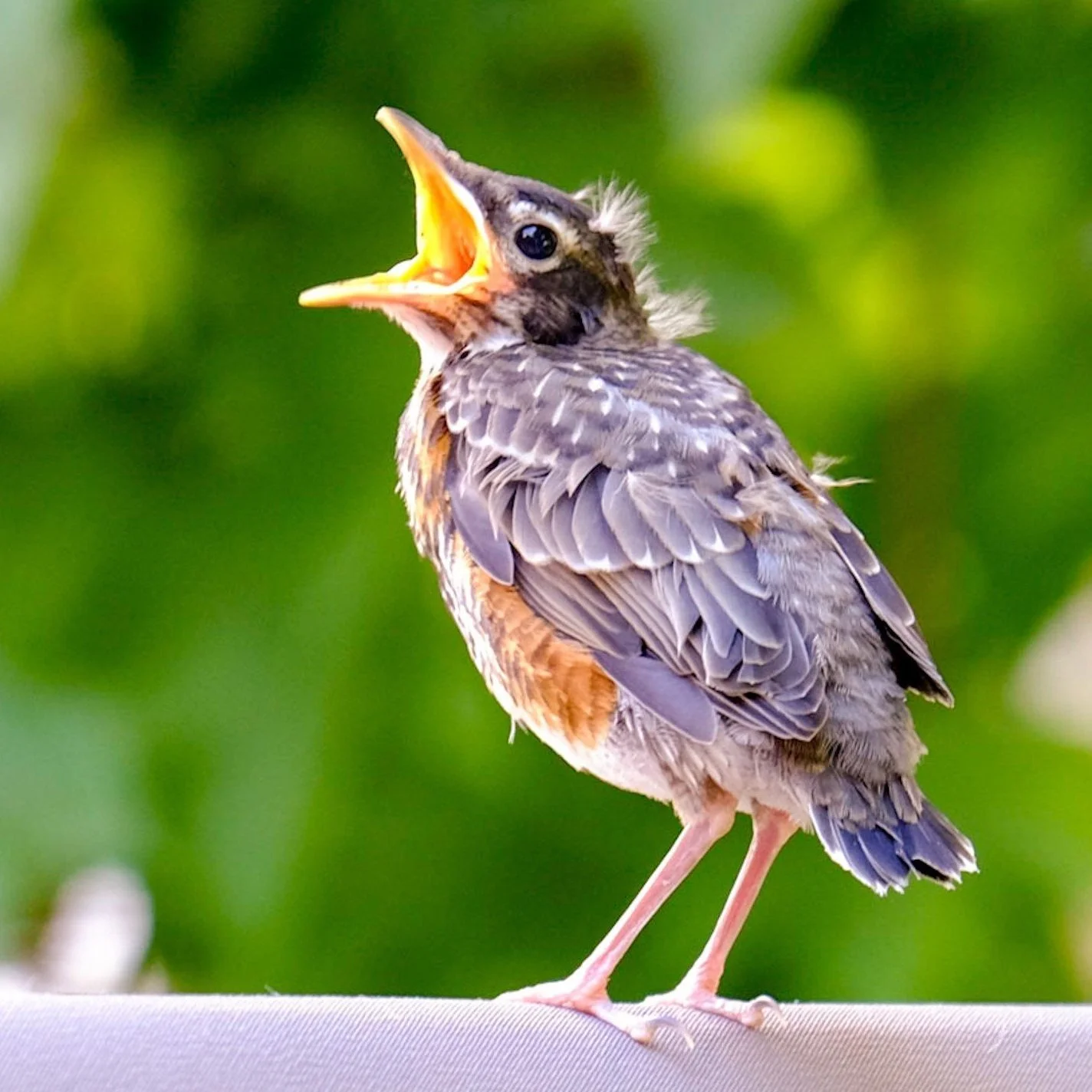
I FOUND A SONGBIRD
Songbirds, also known as passerines, make up a large percentage of animals that are admitted to wildlife rehabilitation centers every year. Knowing when to intervene and natural, healthy behavior is crucial when determining if a songbird need assistance.
If You Find a Songbird That:
Flew into a wall or window
Has had a dog or cat interaction
Is bleeding or has physical injuries
is not responsive, laying on side, or gasping
Is an adult that is “grounded” and unable to fly
Has its eyes swollen shut or is unable to stand
Has been hit by a car or garden equipment
This is an emergency. Receive immediate support by calling our clinic or contact your local wildlife rehabilitator.
If You Find a Songbird That:
Is a mobile fledgling on the ground unable to fly
Is a nestling that fell out of the nest or had the nest destroyed
Is a nestling but no parents are in the nest
This is okay! Fledglings should be left alone and nestlings/hatchlings can be placed back into the nest. If the original nest is too high or damaged, call our clinic or contact your local wildlife rehabilitator.
Hatchlings
Hatchlings are featherless but may have hatch down depending on the species. These birds should be in the nest and rely on the parents for care.
Nestlings
Nestlings are starting to develop feathers but are often found stationary and in a “sitting” position. They are still unable to fly and rely on the parents for care.
Fledglings
Fledglings are fully feathered and resemble adult birds. These birds are mobile and will often jump, run, and hop about. They are learning to fly and still rely on the parents for care. Fledgling feather coloration is often different compared to mature adult birds and they may still have hatch down present.
Do you still have questions after reading the information above? Receive immediate support by calling our clinic or contact your local wildlife rehabilitator.



